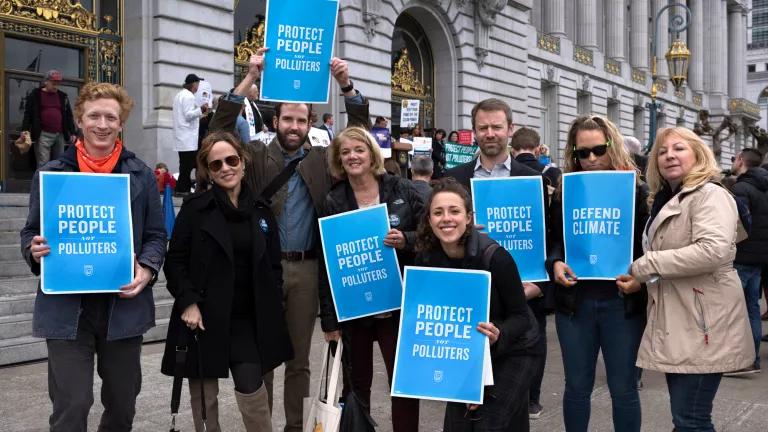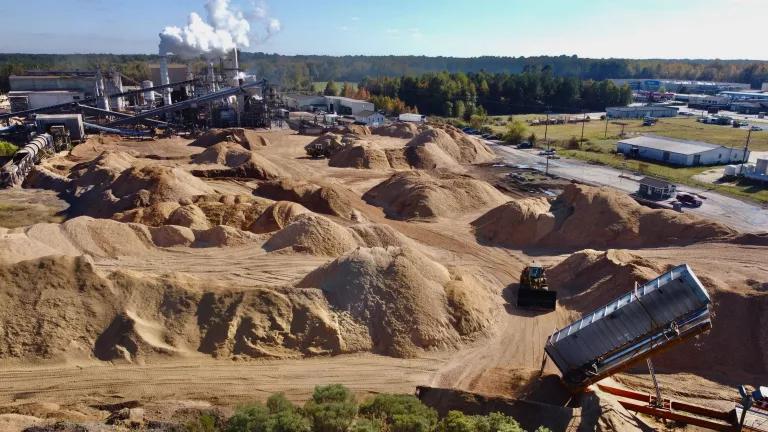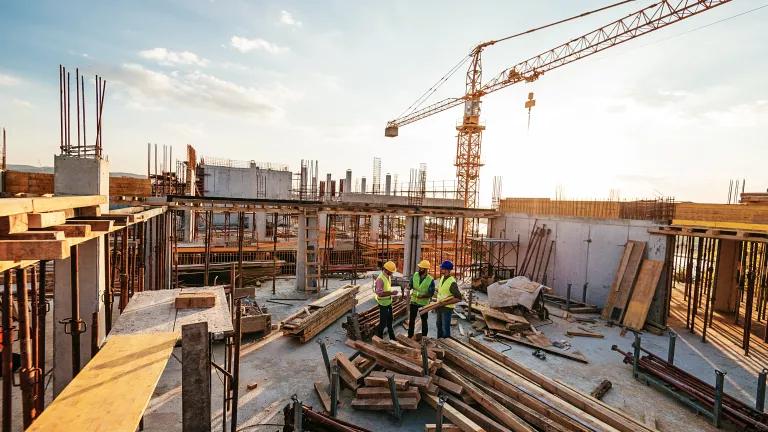The California Chamber of Commerce, a petroleum-powered flag-bearer for opponents of progress under California’s historic clean energy law, AB 32, filed suit in Sacramento Superior Court yesterday seeking to invalidate the auction component of AB 32’s cap-and-trade program. Having failed to hamstring the program’s capacity to drive critical public health improvements and foster clean energy innovation – first during an unprecedented public rulemaking process at the Air Resources Board and then at the Legislature – the Chamber is taking its third bite at the apple, this time in court.
Thankfully, California’s program is no mushy Granny Smith. It was built to withstand these very attacks, and we fully expect that it will (UCLA law professors Ann Carlson and Cara Horowitz, who have written previously on these legal questions – see here and here – have already assessed the Chamber’s suit as “quite weak”).
The Chamber’s lawsuit consists of two parts: first, that AB 32 does not authorize the California Air Resources Board to use an auction as a means of distributing carbon pollution allowances; and second, that even if AB 32 does provide that authority, an auction would run afoul of the California Constitution’s prohibition on raising state taxes without a 2/3 vote of the Legislature (AB 32 passed by majority vote back in 2006).
More on the merits later, but what’s absent from the Chamber’s complaint is a clear elucidation of the remedy it seeks: namely, more free allowances for its large emitting members. Under a cap-and-trade program, facilities must submit allowances equal to their reported and verified carbon pollution. The regulator, in this case CARB, has two primary options by which to distribute allowances to the market: directly to certain industries, on the basis of complicated, opaque and politically-charged formulas, or through a straightforward auction where all-comers have equal access. At the outset, CARB will allocate 90 percent of allowances freely to industry, gradually transitioning towards a greater reliance on auctioning to build in time for businesses to adjust.
But apparently that’s not enough: by alleging the auction is illegal, the Chamber’s underlying presumption is that CARB’s only recourse is to freely distribute all of the allowances over the course of the program to incumbent polluters. The notion that CARB is allocating allowances “to itself” by setting aside a portion of allowances for auction is absurd. CARB is in no way participating in the market or seeking financial gain by holding an auction; auctions ensure all market participants have equal access to allowances, not simply those that received a free allocation.
This should come as no surprise. The Chamber and their status quo allies have been banging the free allowances drum for more than five years at CARB (undeterred by the expert assessment of the Economic and Allocation Advisory Committee that auctioning provides the most efficient and equitable means of distributing allowances) and the Legislature, pushing a last-ditch “gut and amend” bill during the final days of session in August to mandate 95% free allowances over the course of the program.
What the Chamber has been less vocal about is the real impact: diverting revenue away from advancing the state’s clean energy goals, reneging on AB 32’s commitment to bring the benefits of clean energy to the state’s most disadvantaged communities, and leaving consumers on the hook for costs that industry can and will pass through – a point reinforced just yesterday by a group of more than 30 prominent economists in a letter expressing strong support for California’s program design and cautioning against overreliance on free allocations.
Also noteworthy is the timing of the Chamber’s suit. As it happens, the first auction is scheduled for today. But the Chamber did not ask the court for any immediate legal relief, and state officials have confirmed the auction will proceed as planned.
So on the eve of launching a program designed to afford the business community maximum flexibility in hitting California’s carbon pollution reduction targets, developed over more than five years, a lawsuit to rewrite the rules of the game hangs in the balance.
For a supposed proponent of market certainty, the Chamber’s action has only fostered more confusion.



